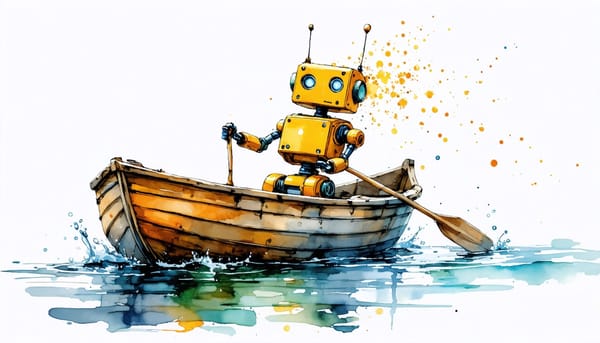The Survival of Humankind: Should We Be Working Towards It?

Given that there does not appear to be a way open to us to determine what the purpose of life is, and therefore no way to know what is ultimately good and bad, it is only natural that there is some disagreement among us what it means to live a virtuous life.
However, there seem to be a few obvious choices for what we could all (or almost all) agree on as being good. One of these is the survival of humankind. Only this survival will put us into a position to one day, hopefully, discover and understand deeper truths about our universe.
Now, mind you, I am of the opinion that humankind is a bit overrated; it seems we are capable of narcissism not only as individuals but as a species as well. However, notwithstanding that, I still believe that it is worthwhile to attempt to save humankind; if only to see where the future will lead us.
Although the survival of humankind seems like such an obvious goal to pursue, we are doing a very poor job ensuring its accomplishment. The root cause of this is that the survival of humankind is a global and intellectually obvious goal but our thinking often tends to be tribal and driven by base emotions. This is understandable since that is the way Nature made us but it is not excusable since we have the capacity to be better than that.
Let us begin with a very obvious threat to the survival of humankind: nuclear weapons. The arsenals of intercontinental rockets and other weapons that the nuclear powers have assembled, around 10,000 by the last count, is more than sufficient to devastate our planet and destroy the foundation for our survival. There is absolutely no current global reason that we must possess any nuclear weapons; the reasons are all local; assuring the superiority or balance of power between individual nations and groups of nations.
Another potential calamity which might end our comfortable life is the explosion of a super-volcano or the impact of a large asteroid. Thankfully the probability of these events is not very high; but the stakes involved are high indeed. If you had 10 million dollars, would you invest them in a place where there was a 1 in 10,000 chance that all your money would be lost? The resources we allocate to predict these events and to build up resilience in case they occur are minuscule; there are certainly far, far smaller than the resources allocated to building BMWs. Lets imagine we would allocate five percent of our economic output to try to help us survive these events; I think we would be able to achieve tremendous progress very quickly.
A final threat for our survival is that our use and transformation of land and the waste we release into the environment (including waste in gaseous form) leads to permanent damage to the planet we depend on for our survival. One prominent idea to model this threat is the idea of planetary boundaries (original research from 2009; update from 2015). The theory is that in various dimensions (such as climate change, biodiversity, land use, etc) there is a safe level of human interference which will assure the continuation of nature on planet Earth as we know it. Crossing the boundary set by this safe level puts us and our planet in danger of being permanently harmed. The scientists involved in the creation of this model have defined nine boundaries. As of 2015 they state that four of the boundaries have been crossed. I think Nature is very resilient and has survived greater threats than humankind; however, we require Nature to be in a very specific state which enables our survival. We do not fully understand what enables this state. I think there is very little reason not to try to limit our harmful effects on the environment.
However, while it will come at little costs to us to abandon nuclear weapons or to prepare for catastrophic one-time events, to assure the health of our environment will probably require great efforts and sacrifices. We already have access to many technologies which can be used to limit our harmful effects on the planet, such as solar power and recycling. However, implementing these across the globe will require tremendous economic effort. Moreover, our current technology limits our ability to reduce the negative impact each of us has. For every human that lives, we require a certain amount of farmland, fresh water, energy and space. To life on this planet sustainability we might have to consider strategies to limit population growth to levels in alignment with our current technological abilities.
The fear that the world will end in a catastrophic event is deeply rooted within us, and is reflected in ancient religious texts and contemporary scientific studies alike. To predict the future is always a tricky proposition and we can never know for sure what will happen. Experience often shows that, more often than not, our worst fears are not realised and that the world goes on. However, how big of a bet do we want to make that we will be fine, that humankind will survive and that unlikely (super-volcano) or likely (collapse of our biosphere) events will not occur? I personally vote for as small a bet as possible. I couldn't think of a single, grander goal than working on the survival of humankind; I think we should put our wealth and ability towards this goal, no matter the costs.
I think the key reason why we don't work towards this goal with sensible intensity is that we do not have strong global institutions and powerful global political organisations which could orchestrate these efforts. Political leaders with real power are given this power from the people of nations; and thus they focus on the welfare of nations rather than the welfare of humankind. Without a change to our political systems, we are poorly equipped to raise to global challenges.
To make matters worse, if we like it or not, the United States of America are the country people around the world look for guidance on solving global problems. Unfortunately, recent years have shown that this exceptional nation is not interested in or willing to work towards creating a better future for all of humankind; instead American people seem to be focussed on their self-interest, and first of all, the four letter word in importance only second to God in politics: jobs. I hope that not only American people but people around the world come to realise that there are things more important than ourselves and those we share a language and culture with; that we will all be more well off if we truely work together on worthwhile goals.
Picture Credit: Theo_Q





